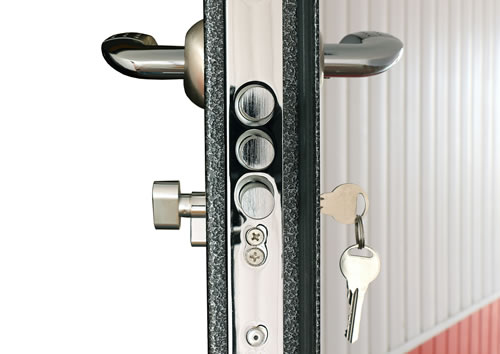Does a Change in Weather Affect How Locks Work?
Does a Change in Weather Affect How Locks Work?
Locks are your most important line of defense against unauthorized entry or theft. Whether it is your home, business, or vehicle, locks help to keep unwanted people out and maintain privacy. However, extreme weather can cause various lock problems, including freezing, rusting, and warping. As a property owner, it's important to understand how a change in the weather can affect your locks. This can help you protect your locks in extreme weather.
How Does Cold Weather Affect Locks?
In the winter, ice can form on your locks, hence blocking the keyhole. If there’s existing moisture in the lock, it may freeze and render it impossible to turn the key in the lock. Even a remote door opener won’t function properly when the lock is frozen. Cold temperatures can also cause the lubricant inside a lock to freeze and expand. This can damage the lock structure and render your lock ineffective. You can resolve this problem by spraying a de-icing liquid on the frozen lock. If the key won't turn in the lock, lubricate the lock with graphite powder. Do not pour hot water on frozen locks because the water can refreeze very quickly.
One of the methods you can use to prevent your locks from freezing is spraying your locks with the WD-40 Multi-Use lubricant.
Another common problem that arises in the winter is that doors may begin to contract and pull away from the frame. When a door contracts, the lock may not align correctly with the frame. A misaligned door can exert too much pressure on your locking systems and lead to defects. If you experience this problem, call a nearby locksmith to inspect your door and the locking mechanism and fix the problem.
If you're locked out of your house or office due to frozen locks, and none of the aforementioned solutions seems to work, call a locksmith to help you out.
How Does Hot Weather Affect Locks?
When the weather heats up, doors and door frames tend to expand, resulting in stiff locks. The expansion can make it challenging to turn the key in the lock. As temperatures warm up in the summer, high humidity can cause wooden doors to warp around the locking mechanism, making it difficult to open. If the hot weather has jammed your locks, you’ll need to contact an experienced locksmith for assistance.
Even door locks with keypads can be affected by extreme temperatures, just like regular door locks. These door locks can get wet when water seeps into the buttons.
Call QuickPro Locksmith for Lock Repair and Replacement
If your lock is jammed as a result of a blocked keyway or the key won’t turn in the lock, call a reliable locksmith to help you out. Do not force the key to turn in the lock as you may end up with a broken key.
At QuickPro Locksmith, we provide a wide range of locksmith services to homeowners and businesses. We provide lock repair, lock replacement, lockout service, key replacement, and many more.

